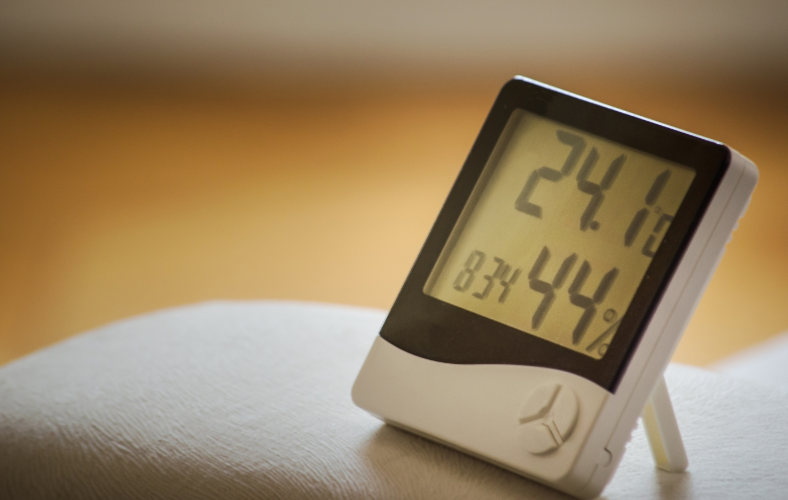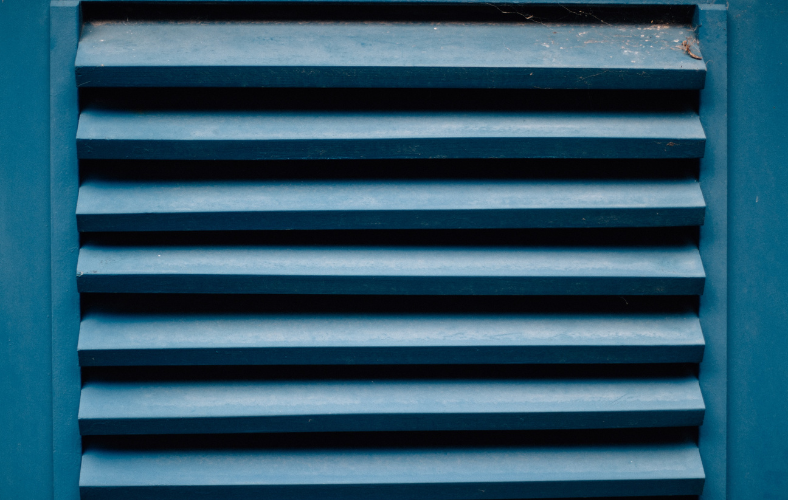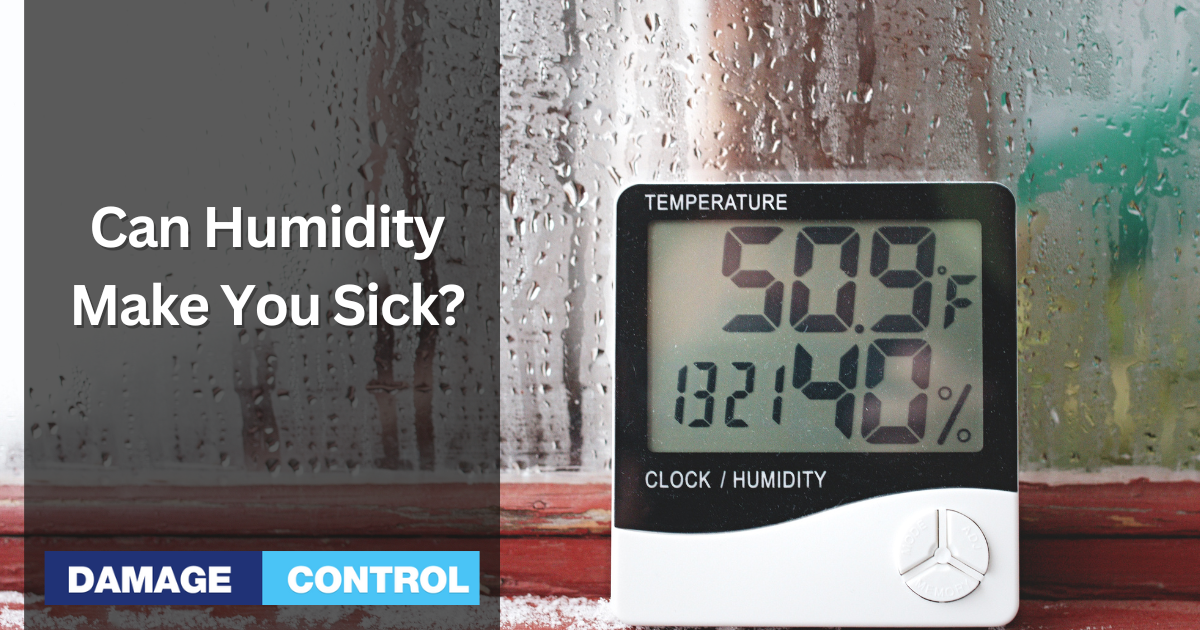When you think of factors affecting your health, you might overlook something invisible, yet very much around us: humidity. That moisture in the air. That clammy feeling on a hot day. But can it really make you ill? Let's dive in.
What is Humidity?

Humidity refers to the presence of water vapor in the air. Relative humidity quantifies this by representing the proportion of water vapor present compared to the maximum amount the air can hold, and it's expressed as a percentage. On the other hand, absolute humidity denotes the actual quantity of water vapor in the air, measured in grams per cubic meter. Think of the air like a sponge: at times it absorbs water avidly, akin to a parched camel in a desert, while at other times, it doesn't. This varying absorption capacity is the essence of humidity.
How Humidity Impacts Health
While humidity is a natural aspect of our environment, it has the potential to negatively affect one's health. High humidity levels can lead to the air feeling oppressively hot, forcing the body to work harder to cool itself, placing undue stress on the cardiovascular system. For those with respiratory ailments, such as asthma, the moisture-rich air can make breathing cumbersome, potentially leading to exacerbated symptoms or flare-ups.
The dampness associated with high humidity can also foster the growth of mold, fungi, and dust mites, which can aggravate allergies and respiratory problems. Furthermore, skin conditions, like eczema, might worsen due to the challenges the skin faces in regulating moisture amidst high humidity. In essence, while humidity is a natural part of our world, it's essential to be aware of its potential health implications.
The Impact on Pre-Existing Conditions
Humidity can exacerbate existing health conditions in several ways. High humidity levels can make the air feel warmer than it actually is, stressing the cardiovascular system as the body struggles to cool down. For individuals with respiratory conditions, such as asthma or chronic bronchitis, humidity can make breathing more difficult. The moisture-laden air can cause the airways to constrict and inflamed mucous membranes can produce excess mucus, potentially triggering asthma attacks or worsening COPD symptoms.
Furthermore, high humidity can be a breeding ground for molds, fungi, and dust mites, which can aggravate allergies. Those with compromised immune systems might also be at a higher risk of contracting fungal infections in humid conditions. Additionally, conditions like eczema can flare up as the skin might struggle to regulate moisture and temperature effectively.
Are There Any Positive Effects?
Humidity isn't just a potential health hazard; it can also have several positive effects on our well-being. For starters, moderate humidity can keep our respiratory system in check. Moist air ensures that the mucous membranes in our nasal passages and throat stay lubricated, facilitating the trapping and expulsion of dust, allergens, and pathogens. This can be particularly beneficial during colder months when indoor heating systems often make the air dry, increasing susceptibility to respiratory infections.
Furthermore, a certain level of humidity can prevent the skin from becoming too dry, reducing the occurrence of conditions like eczema and ensuring the skin remains supple. It also provides relief to dry eyes and helps in keeping hair hydrated and less prone to breakage. Thus, while extreme levels of humidity can pose challenges, a balanced humidity level can indeed be conducive to better health.
Humidity Solutions for Health
If humidity can influence our well-being, then mastering its control becomes crucial. While we can't control Mother Nature, we can certainly manage the humidity in our personal spaces. Let's delve deeper into practical strategies.
Hydration is Key

Drinking water is crucial for various health reasons. It aids in regulating our body's temperature, ensuring that during humid days, our sweat response is optimal for maintaining a stable temperature. Additionally, water plays a pivotal role in respiratory health by keeping our mucous membranes moist, which in turn helps trap unwanted particles and pathogens. Moreover, our skin benefits immensely from regular water consumption. In the face of dry air that can strip away skin moisture, drinking water acts as a shield, hydrating our skin from the inside out.
Invest in a Humidifier or Dehumidifier
Benefits of Humidifiers
A humidifier can be a valuable tool when dealing with the negative impacts of dry air. By releasing water vapor into the atmosphere, it not only soothes dry skin, throat, and nasal passages but also enhances the overall comfort of a room. In colder months, this increased humidity can make a room feel warmer, potentially allowing for a reduction in thermostat settings and leading to energy savings.
Benefits of Dehumidifiers
Conversely, a dehumidifier addresses the challenges of excessively moist conditions. By extracting surplus moisture, it ensures a balanced indoor ambiance. More importantly, in maintaining optimal humidity, dehumidifiers play a pivotal role in preventing mold proliferation and keeping dust mites in check, thus fostering a healthier living environment.
Regularly Clean Your Home
A clean home is more than just about achieving a pleasing visual appeal; it's a crucial strategy for maintaining health.
Surfaces
Wet surfaces, especially in areas like bathrooms and kitchens, can quickly become a haven for mold and bacteria. It's essential to wipe them down with absorbent towels. To further safeguard against mold, mold-resistant cleaners can be a worthy investment.
Carpets
Carpets, with their intricate fibers, can trap both moisture and dirt. This can make them potential breeding grounds for mites and mold. To mitigate this, it's advisable to vacuum regularly, at least once a week, and to get them professionally cleaned from time to time. If a carpet becomes wet, it's of utmost importance to dry it thoroughly.
Air Filters
The air filters in HVAC systems, though often out of sight, can harbor dust, moisture, and mold spores as time passes. Regular maintenance involves changing these filters as directed by the manufacturer. For enhanced air quality, HEPA filters, recognized for their ability to capture even minuscule particles, are worth considering.
Ventilate

The Power of Fresh Air
Air within our homes undergoes constant change, and understanding the difference between stale and fresh air is crucial for our well-being.
Stale vs. Fresh
Indoor air has a tendency to become stagnant and stale over time. This staled state can be attributed to a collection of moisture and various pollutants. The introduction and circulation of fresh air are vital to combat this and keep the home's atmosphere rejuvenated and healthy.
Effective Methods for Air Exchange
Simply opening a window isn't always enough to ensure adequate air exchange. Integrated strategies, like installing exhaust fans in moisture-prone areas such as bathrooms and kitchens, can significantly assist in displacing stale air. Another effective technique is cross ventilation, where windows positioned on opposite or different sides of a home are opened. This not only pushes out the old, stale air but draws in the fresh air more effectively.
The Rewards of Fresh Air
Embracing the infusion of fresh air into our living spaces brings numerous benefits. It leads to notably improved air quality, mitigates the risks associated with mold growth, and fosters a more inviting and pleasant living environment. In essence, fresh air enhances both our home's ambiance and our overall health.
By embracing these strategies, you're not just combating the effects of humidity; you're laying the foundation for a healthier living environment. Remember, it's not just about responding to issues, but proactively setting up an environment where you and your loved ones can thrive.
Wrapping it Up
Humidity plays a pivotal role in our health, with both extremes, whether excessive or deficient, potentially leading to health complications. Various health conditions, ranging from the discomfort of dry skin to the more severe implications of mold growth, are intricately tied to the moisture levels in our surroundings. Fortunately, with a proactive approach, we can take preventative measures to safeguard against these risks.
With this newfound understanding, you're not merely informed but also empowered to take action. Should someone question whether the atmospheric conditions are impacting their well-being, you'll be well-prepared with insights. Remember, when it comes to our health and well-being, every drop of moisture in the air truly matters.

